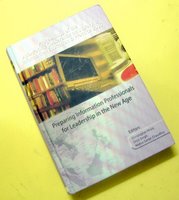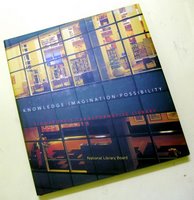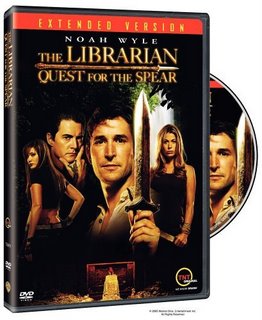The article below is the preprint version of the one I wrote for the next issue of Star Teacher, which will appear in print by June. While some of the details apply specifically to Filipino public school librarians, most of the suggestions in my opinion are also relevant to all librarians.
What can teacher-librarians do to improve their libraries?
By Vernon R. Totanes
Public school libraries in the Philippines tend to be neglected for many reasons, including the lack of a full-time librarian, the designation of overworked teachers as teacher-librarians, and of course lack of financial resources to buy the necessary materials. But why is it that some libraries flourish despite facing the same difficulties that others also have?
Some were lucky because they were chosen to be the beneficiaries of generous donors. But more often than not, the few libraries that have developed more than others had teacher-librarians who were devoted to their students and saw that libraries were important. Even the lucky few were probably chosen precisely because their teacher-librarians exhibited the qualities the donors were looking for.
If you have been designated a teacher-librarian, but don’t really have too much time or were not given enough training or resources to manage the library effectively, what can you do to improve your library? Here are a few suggestions:
Decide that you want to be an agent of change
Yes, it will all have to start with you. You have to make a conscious decision that you want to make the library a place for learning, and that you will find the necessary time, if not resources, to achieve this.
In the parable of the talents, where three men are given money to invest, the lesson is that those who are able to demonstrate that they can do more with what they have will be given even more. And, of course, the one who decided to just bury the money he was given, lost even the little that he had.
You may not have much money from the school authorities, but if you decide that you want to do more with the scant resources at your disposal, then the likelihood that you will be given more goes up. But if you just choose to sit on what you have and hope that someone will come along to help you, you’ll probably have to wait for a very long time.
Think of yourself as a missionary, not a mechanic
The library is not like a car, where all the parts have to work before it can start running. Think of the library as a church or a mosque, where people can still go even if it’s not yet fully finished. This means that you don’t have to be an expert cataloger to arrange the books. If your library has less than a thousand books, you can devise a system so that books may be borrowed and returned without having to assign call numbers.
The bigger problem that needs to be addressed is that of convincing others that the library is important. In short, you need to be a missionary to your principal, co-teachers, students, their parents, and the larger community. Once you’ve convinced others that the library is important—this, however, may take years—then organizing the library and getting the necessary resources, both human and financial, should become easier.
Write your mission statement, and make it happen
Every missionary must have a mission. What kind of library do the students need? Write it down, break it up into realistic objectives and set deadlines for yourself. Back it up with action plans and cost estimates. This is what you will show to those who will want to help you achieve your mission.
Yes, there are people who will want to help you, but you will have to identify these people, present action plans, and show that you are capable of carrying out your plans. It’s not going to be enough to say that you want a “world-class library” or a “good library.” Potential donors will want to know exactly what such a library will be like, why it is appropriate for your school, how much it will cost, and whether you can deliver on your promises.
Self-promotion is a necessary evil
Filipinos tend to be very modest, and so it’s possible that you will want to keep a low profile. But what would the television networks be without the Kapuso and Kapamilya stars? In elections, voters usually write down the names of candidates with whom they have a personal connection, no matter how remote.
You have to be the face of the library, especially if it’s not yet what you hope it will be. Don’t hide in the library; go out there and participate in the school’s activities. If enough people see that the teacher-librarian is capable of hosting events, for example, then they might be more willing to believe that you can achieve your mission.
You also need to be ready for the attention. Don’t just fix up the library, start fixing yourself up, too. And it’s not just physical, make sure that your image is not that of the stereotypical librarian who is masungit (cranky). After all, the school principal and potential donors who see that students are afraid to go to the library will not be encouraged to be generous.
Bring the library to your customers
No, don’t give the books away. What this means is that you need to tell your customers—the members of the school community—that the library exists and what services the library can offer. There are banks where the tellers just sit and wait for people to open the door and come in. And then, there are banks where sales representatives go out and tell potential customers what the bank can do for them. Which banks do you think are more successful?
Another way of doing this is to cooperate with other teachers in their lessons. Try to match what they need with your skills or the resources the library can provide. And then there are special occasions on which they may need your assistance. Plan for those events and offer the information you were able to gather even before they ask for help.
Be proactive
All these suggestions can be summarized in two words: be proactive. And this means doing what must be done without having to be told what to do. Teachers are expected to be proactive and prepare their lessons, instead of going to class unprepared and just reacting to questions posed by students. Teacher-librarians must do the same.
Categories: Librarians, Libraries—Public Schools
Read More...
Summary only...






